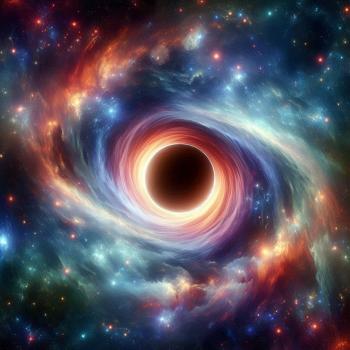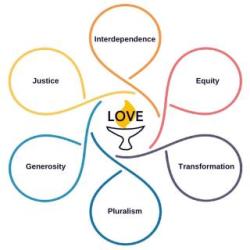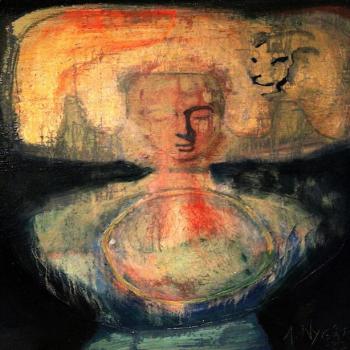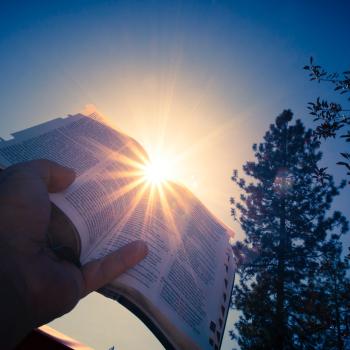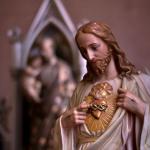
If someone asked you “Who is God?” or “What is God?” how would you answer the question? I gave it my best shot several years ago (here) and can tell you it is no easy task. It is, as the saying goes, like trying to define the undefinable.
That’s why, when listening to a recent episode of the radio show Fresh Air, my ears opened wide when I heard the host Terry Gross put the question to Barbara Brown Taylor, a guest on the show. Taylor is a former ordained priest in the Episcopal Church, who went on to become a college professor and author.
Her response is below and it just might be the best definition of God I have ever heard or read. For starters, it recognizes that the concept of God is very personal and is different from person to person. There is no single correct answer. From there, it goes on to define a God as more of a presence than a person. Here’s the excerpt:
When I use the word God, I am so aware I’m using a code word and that everyone who hears that word and probably everyone who uses it imagines something different, imagines a different posture in front of that being, that presence. I suppose my own image, my own idea of God, as imperfect and as evolving as it is, right now would bethe glue that hooks everything together, the consciousness that moves between all living things.
When I use the word God, I do not envision a large person with two arms, two legs and nose and two eyes. I envision, instead, some presence so beyond my being, a presence that both knows the stars by name and knows me by name, as well, that is not here to be useful to me, that is not here to give me things as much as to ask me to give myself away for love. I, of course, get a great deal of what I mean by God from the tradition in which I stand – the Christian tradition, the Hebrew Bible and New Testament. But when I say I believe in God, I mean I trust. I trust in the goodness of life, of being. I trust that beyond all reason. I trust that with my life. And that’s what I mean by God.
For me, the key line here is “the glue that hooks everything together, the consciousness that moves between all living things.” It matches what I’ve always thought was the best short definition of God, which comes from the theologian Paul Tillich, who passed away in 1965. It goes like this:
God is not a being, it is being itself.
This notion of God also compares to a definition put forth by John Templeton who, along with Thomas Moore, has probably done the most to shape my spiritual point-of-view. Templeton is better known as a legendary Wall Street figure, but his greatest contribution may have been his books on spiritual philosophy and the world’s religions. In his book Worldwide Laws of Life, he wrote:
The wonderful substance of God flows in and through us and extends in every direction. Truly, there is no place we can go where we are not bathed in the infinite sea of this substance of the universe.
Templeton goes on to equate the “substance” of God to love and that if we are open to receiving this love from God it can also flow from us. We give and we receive in an endless cycle. In defining this God that equates to love, Templeton goes on to say:
Love is more than affection. It is that magnetic, attractive force that binds families, friends, states, and countries together. Love has been called the “harmonizing glue of the universe.” It is an inner quality that beholds good everywhere and in everyone.
This idea of a “harmonizing glue” matches Taylor’s description of “the glue that hooks everything together.” An interesting and thought-provoking concept, isn’t it?
If you liked this story, you might also like: A Definition of God for the Spiritual but Not Religious





